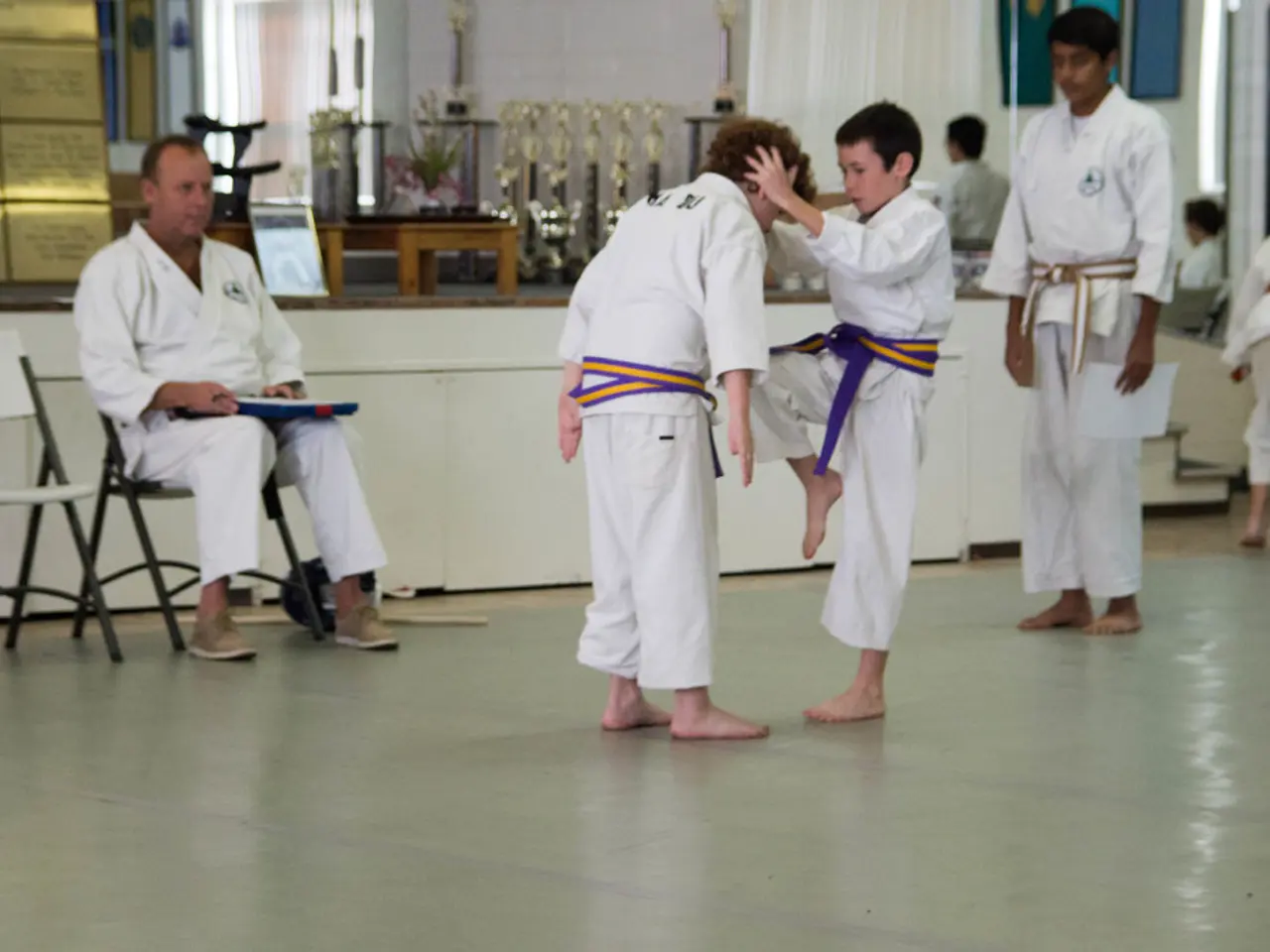Signs of Persistent Negativity in Your Circle: Identifying and Managing Them Effectively
In a world where focus and self-control are crucial, individuals with Attention Deficit Hyperactivity Disorder (ADHD) often face unique challenges. However, with the right strategies, it is possible to develop self-discipline and improve one's quality of life. Here are key strategies based on expert recommendations for effectively developing self-discipline in individuals with ADHD:
1. **Establish Supportive Routines and Structure**
Creating consistent daily routines helps improve time management, reduce stress, and increase productivity. These routines should be supportive rather than rigid, incorporating predictable anchors like a templated morning or evening routine to ease task transitions. Examples include laying out clothes the night before, starting the day with a favourite playlist or simple ritual, and using habit stacking by linking new habits to existing ones to reduce decision fatigue.
2. **Set Realistic, Manageable Goals**
Break down larger tasks into smaller, achievable chunks with clear deadlines. Setting realistic goals helps maintain motivation and decreases the likelihood of overwhelm. Celebrate small successes to reinforce progress and build positive momentum.
3. **Use Tools and Techniques to Enhance Focus and Organization**
Apps employing focus techniques like the Pomodoro method (e.g., Forest or Focus Keeper) encourage concentrated work intervals followed by breaks, providing visual progress cues that motivate. Also, practice the "daily brain dump" by writing down all thoughts and tasks, prioritizing and organizing them into manageable lists with reminders, reducing mental clutter and overwhelm.
4. **Practice Mindfulness and Emotional Regulation Techniques**
Mindfulness meditation cultivates awareness of thoughts and feelings, helping to reduce impulsivity and improve concentration. Regular practice, even starting with a few minutes a day, supports emotional regulation vital for discipline.
5. **Behavioural Activation and Cognitive-Behavioral Therapy (CBT)**
CBT techniques help individuals identify and modify negative thought patterns, develop coping strategies, and create structured routines that enhance self-control. Behavioural activation focuses on increasing engagement with structured activities to boost motivation and reduce procrastination.
6. **Use Positive Reinforcement and Self-Compassion**
Avoid harsh self-criticism in response to setbacks. Instead, use self-compassion and reward systems to encourage consistency and reduce ADHD paralysis effects. Techniques like temptation bundling—pairing less enjoyable tasks with pleasurable activities—can make starting tasks easier.
7. **Seek Professional Support**
Working with ADHD-trained therapists or coaches can provide personalized strategies and accountability, enhancing the development of discipline.
8. **Build Resilience**
Individuals with ADHD can improve their ability to stay focused and complete tasks by building resilience, which involves learning from setbacks and persevering through challenges.
9. **Practice Deep Breathing and Meditation**
Deep breathing, meditation, or mindfulness techniques can help individuals with ADHD manage impulsive behaviors and improve self-discipline.
10. **Utilize Parenting Strategies**
Parents of children with ADHD can use parenting strategies to help their child develop self-discipline, such as setting clear rules, consequences, positive reinforcement, and a structured routine.
11. **Develop Life Skills**
Life skills such as time management, organization, and prioritization can help individuals with ADHD develop self-discipline and improve their overall quality of life.
12. **Take Positive Actions**
Focusing on taking small, consistent steps toward goals, even if they are just for a few minutes each day, can help individuals with ADHD build momentum and achieve long-term success.
13. **Practice Self-Awareness**
Individuals with ADHD can benefit from practicing self-awareness to better understand their impulses and triggers, which can help them manage their behavior and develop self-discipline.
14. **Set Goals and Make a Plan**
Setting achievable goals and breaking tasks down into smaller, manageable steps is essential for self-discipline.
15. **Seek Professional Help**
Behavior modification and management plans developed with a psychologist or other professional can aid in developing self-discipline with ADHD.
16. **Use Time Limits**
Setting time limits and routines can be helpful in developing self-discipline with ADHD. For example, setting a timer for 15-20 minutes of focused work followed by a 5-6 minute break can help individuals with ADHD stay on task.
By integrating these strategies—structured yet flexible routines, practical tools, mindfulness, CBT principles, positive reinforcement, and professional guidance—individuals with ADHD can progressively build effective self-discipline tailored to their unique needs.
- Incorporating mindfulness and emotional regulation techniques, such as meditation, into daily life, can help individuals with ADHD improve concentration, reduce impulsivity, and manage stress.
- With the aid of technology, using focus techniques like the Pomodoro method via apps like Forest or Focus Keeper can enhance productivity for those with ADHD by encouraging structured work intervals and breaks.
- Fitness-and-exercise and health-and-wellness practices, like deep breathing exercises and regular physical activity, can positively impact mental health for individuals with ADHD, supporting self-discipline development.
- To boost career development and productivity, career-development strategies, such as goal setting, time management, and organization skills, are crucial for individuals with ADHD to effectively manage their personal and professional lives.
- Education-and-self-development opportunities, like workshops, online courses, and books on ADHD management and personal growth, can provide individuals with ADHD with valuable strategies to build self-discipline and improve their quality of life.
- To ensure long-term success, it's essential for individuals with ADHD to invest in their mental health by seeking professional help, engaging in self-awareness practices, and developing lifelong learning habits for continued self-discipline improvement.




